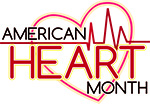 Heart disease is the leading cause of death for men and women in the United States. Every year, 1 in 4 deaths are caused by heart disease.
What Is Heart Disease?
When people talk about heart disease, they are usually talking about coronary heart disease (CHD). It's also called coronary artery disease (CAD). This is the most common type of heart disease.
When someone has CHD, the coronary arteries (tubes) that take blood to the heart are narrow or blocked. This happens when cholesterol and fatty material, called plaque build up inside the arteries.
Plaque is caused by:
• Too much fat and cholesterol in the blood
• High blood pressure
• Smoking
• Too much sugar in the blood (diabetes)
• When plaque blocks an artery, it's hard for blood to flow to the heart. A blocked artery can cause chest pain or a heart attack
The good news? Heart disease can often be prevented when people make healthy choices and manage their health conditions. Communities, health professionals, and families can work together to create opportunities for people to make healthier choices.
Make a difference in your community: Spread the word about strategies for preventing heart disease and encourage people to live heart healthy lives.
How can American Heart Month make a difference?
We can use this month to raise awareness about heart disease and how people can prevent it - both at home and in the community.
Here are just a few ideas:
• Encourage families to make small changes, like using spices to season their food instead of salt.
• Motivate teachers and administrators to make physical activity a part of the school day. This can help students start good habits early.
• Ask doctors and nurses to be leaders in their communities by speaking out about ways to prevent heart disease.
You can make healthy changes to lower your risk of developing heart disease. Controlling and preventing risk factors is also important for people who already have heart disease.
To help prevent heart disease, you can:
• Eat healthy.
• Get active.
• Stay at a healthy weight.
• Quit smoking and stay away from secondhand smoke.
• Control your cholesterol and blood pressure.
• Drink alcohol only in moderation.
• Manage stress.
Am I at risk for heart disease?
Everyone is at risk for heart disease. But you are at higher risk for heart disease if you:
• Have high cholesterol or high blood pressure
• Smoke
• Are overweight or obese
• Don't get enough physical activity
• Don't eat a healthy diet
• Your age and family history also affect your risk for heart disease. Your risk is higher if: You are a woman over age 55, You are a man over age 45, Your father or brother had heart disease before age 55, Your mother or sister had heart disease before age 65
Signs of Heart Attack
A heart attack happens when blood flow to the heart is suddenly blocked. Part of the heart may die if the person doesn't get help quickly.
Some common signs of a heart attack include:
• Pain or discomfort in the center or left side of the chest - or a feeling of pressure, squeezing, or fullness
• Pain or discomfort in the upper body - like the arms, back, shoulders, neck, jaw, or upper stomach (above the belly button)
• Shortness of breath or trouble breathing (while resting or being active)
• Feeling sick to your stomach or throwing up
• Stomach ache or feeling like you have heartburn
• Feeling dizzy, light-headed, or unusually tired
• Breaking out in a cold sweat
Don't ignore changes in how you feel.
Signs of a heart attack often come on suddenly. But sometimes, they develop slowly - hours, days, or even weeks before a heart attack happens.
Talk to your doctor if you feel unusually tired for several days, or if you develop any new health problems (like pain or trouble breathing). It's also important to talk to your doctor if existing health issues (like pain) are bothering you more than usual.
If you've had a heart attack in the past, it's important to know that symptoms of a new heart attack might be different from your last one - so talk with your doctor if you have any concerns about how you feel.
But the good news is there's a lot you can do to prevent heart disease.
For more information, visit healthfinder.gov. |






